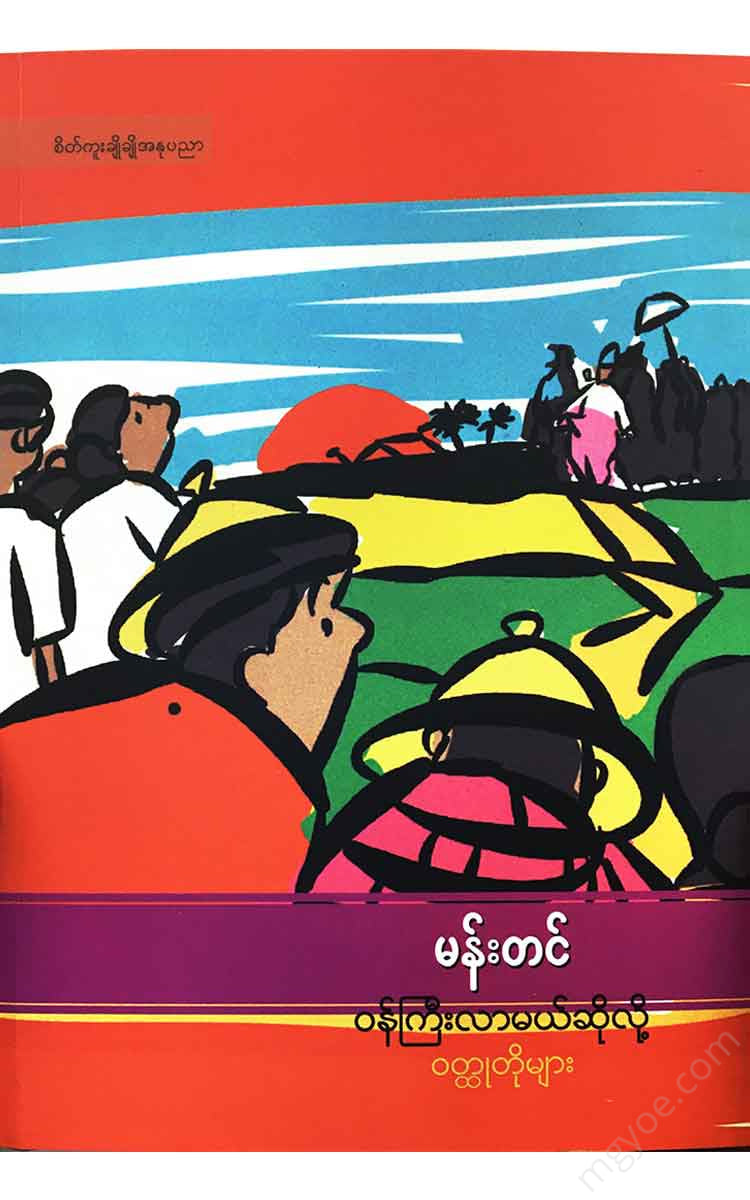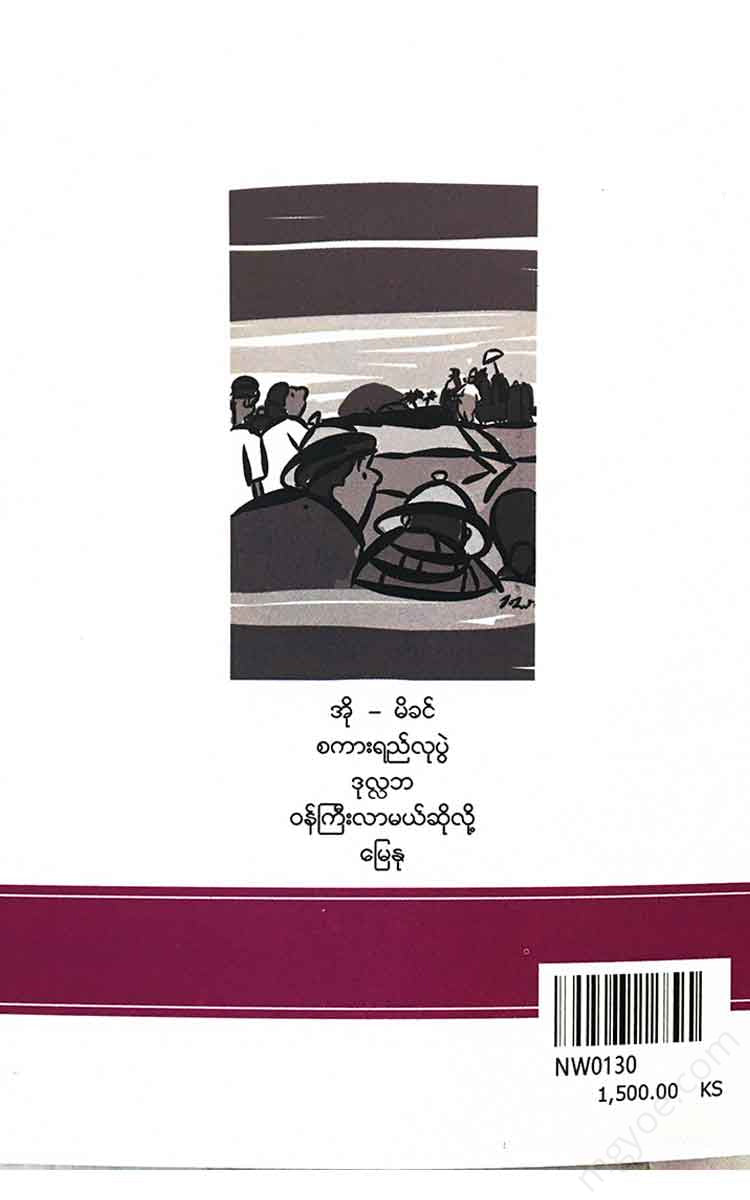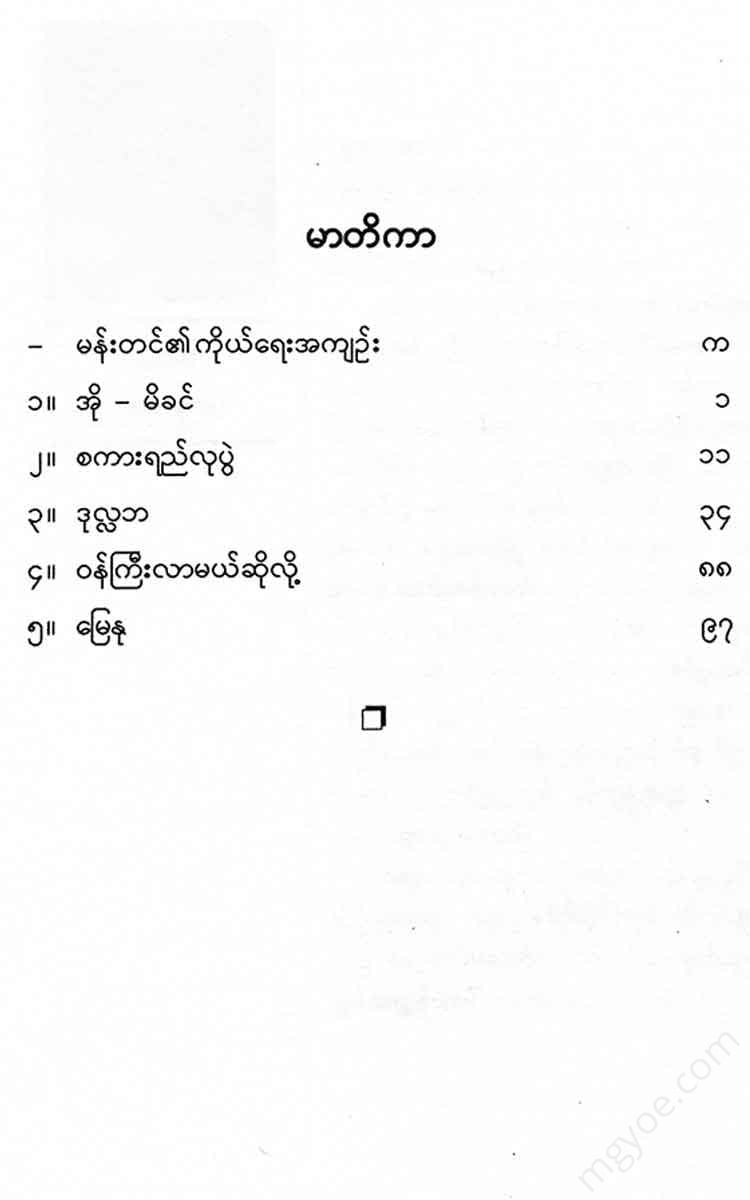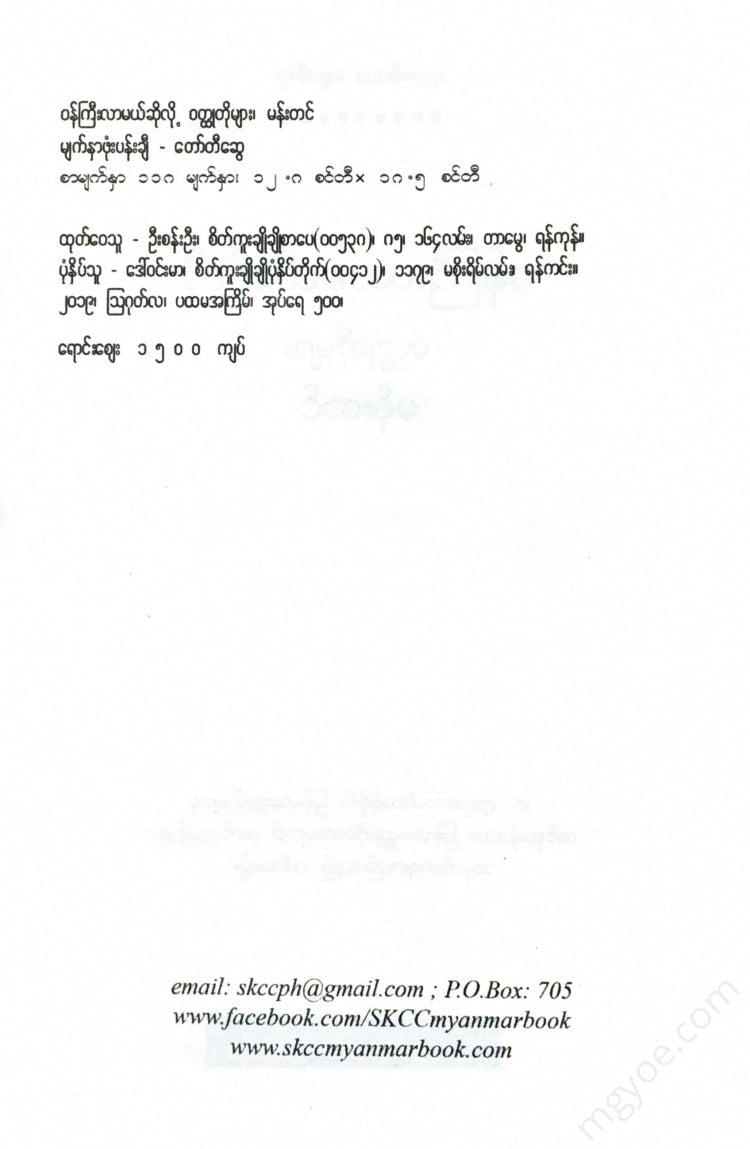စိတ်ကူးချိုချိုစာပေ
Man Tin - Short stories about the minister coming
Man Tin - Short stories about the minister coming
Couldn't load pickup availability
Oh - mother
This is the work of Man Tin, who participated in the university section of Dagon Magazine, published in 1299, Tabaung Month. It was written more than 20 years ago. (Text.)
Because it was winter, the village of Htangone was covered with snow and was covered in a dark, misty haze, and the whole village was silent. After a while, the long crowing of a rooster from the roof of U Bowlin's house was heard, very sharp in the silence.
This is the time when my mother gets up from her bed and prepares alms. Today, my mother's usual practice will be broken. Just yesterday, my mother offered alms, water, and flowers to the Buddha and sought the forgiveness of her father, who had gone away. But now he has abandoned us and gone on a path that is not easy to follow. I am the son who is loved by my mother.
I will continue to do all the things my mother would do, and I will prepare a meal with this in mind. When I got up from bed, it was still a little dark, so I lit the kerosene lamp next to me. As soon as the lamp burned brightly, the entire hut, built of bamboo and thatched with young trees, was suddenly illuminated.
Nearby, a 2-year-old baby boy was sleeping soundly. Last night, my little brother slept in his mother's arms, wrapped in his arms. But now, you are far away from your mother's arms. Since you were conceived, your mother has protected you from suffering and sorrow with the love of her children. Since yesterday, when you received alms, I will have someone to protect you. I alone have you to rely on. Oh, mother, do not be weak, my little brother, you are all I can rely on. I have no one to rely on.
I wrapped my younger brother in a thick blanket, lit a small candle, and got up, thinking I was going to the stove. I saw two small photos of my parents hanging side by side at my head. The kerosene lamp was so weak that I could barely see them. My parents were looking especially pale today. I imagined that they were shedding tears. When I looked closely at the candle, which I had not even noticed I was holding, I realized that it was not what I had imagined.
The man who was sleeping and breathing normally, the orphaned little brother, who was afraid of waking up, stepped gently on his feet and went to the stove. When the alms bowl was full, all the crows on the big tamarind tree to the north of the house were making noise, as if saying, “Get up, let’s go find food.” This was the time when my mother offered alms. After washing the alms bowl, I picked up the baby U Paung, who lived in Phyu Phway Mauk, and put it in a small alms bowl. Four or five days later, I put the bread that my mother herself had bought from the city in a bowl, and offered alms to the Buddha in front of the statue in the front room. I heard my mother’s clear and distinct voice praying to the Buddha every day at this time. That voice would be silent from today on. After the alms bowl was finished, The mother used to share with the deceased relatives and all their properties with the mother. I also share the merit I have done now with the deceased relatives and all their properties with the mother and father. O mothers and fathers, may you rejoice and be blessed in your future life, just as your son has given you.
The sun from the east rose into a beautiful, red, liquid ruby. The snow gradually disappeared as if it were afraid of the sun. From a distance, I could hear the clear, pleasant sound of the brass drum and the shrill, triumphant voice of the monks of the East, “Swantaw Byo.” Every day, when I heard this sound, my mother would prepare and wait for the offering. I would also take a bowl of alms, bring the fried fish that my mother had fried herself, and wait at the door for the offering. The monk U Jayanta, who had come to receive the alms, knew that my mother had passed away, so he passed by. When he saw me waiting to give alms, he stood at the door with a sad face. At this time, my mother would give alms without shoes and with a bow on her shoulder.
I also offered alms to my mother and father with great devotion and devotion. At that moment, the copper drum began to play joyfully, as if proclaiming my merit to the entire universe. My heart followed the sound of the copper drum, and my body remained motionless, unable to move, and tears rolled down my hot cheeks.
At that moment, I heard a voice from inside the house, “Mom,” and when I remembered, the monk and the students had already gone far away. My younger brother’s voice, “Mom,” was like a tug on my heart. I didn’t even know what I was stepping on, but I went to my younger brother. My younger brother was crying and longing for his mother, so I talked to him for a long time, and then he stopped crying and left.
The sun was just a few inches above the horizon. The sound of “Swantaw Byo” and the sound of the brass drums were no longer heard in the village. The villagers had also gone to their work. At this time, a terrible fate had befallen my mother. My mother was tossing and turning in bed, complaining that the wind was blowing. I didn’t know what to do, so I took the medicine from the bottle as my mother instructed. Soon I started vomiting. I went to call my neighbor Daw Phe, who also ran to find me. She tried everything she could to relieve the pain, but it didn’t go away, and the pain only got worse. Daw Myit from the house to the north soon arrived. Daw Myit didn’t understand the pain, so she picked up her little brother who was crying next to her and tried to comfort him. Then Daw Myit’s husband, U Bowlin, arrived again. The priest from the mountain had ordered me to go and fetch the sick woman, so I did not want to leave my mother, but I thought that if the sick woman came, her mother's pain would be relieved, so I ran barefoot and without shoes. But I did not find the sick woman, and I ran back to the house. When I reached the house, there was no one near my mother, but the room outside was crowded with people. They looked at me with wide eyes. Some of the women had tears in their eyes. Others were whispering. Seeing their behavior, I, unsuspecting, felt hot and burning inside, my whole body was exhausted and exhausted, and I went to my mother. My mother was lying on her back, not moving. Her eyes were closed. Was my mother sleeping, having recovered from her illness? She was not breathing. "Mommy...Mommy," I called out, and I held and shook the little fingers that were resting on my chest, but my mother could no longer hear my voice. She could no longer feel my touch or movement. This sleep was a sleep from which she would never wake up. Oh, mother, how can I live with my two brothers, separated from their relatives, in a strange village, and abandoned and abandoned? My grief cannot be expressed in words or written. I have never experienced such grief in my life.
My mother is unfortunate. If she had died in her mother's village, in her mother's house, she would have been given a beautiful burial in the midst of all her relatives. My mother had only been in this village for three months. The villagers were not related to her in any way, and this house was only a temporary dwelling, and her son had only a tenth of the wealth. How could a son with such limited financial resources, in a village where he had no relatives, bury his mother beautifully?







